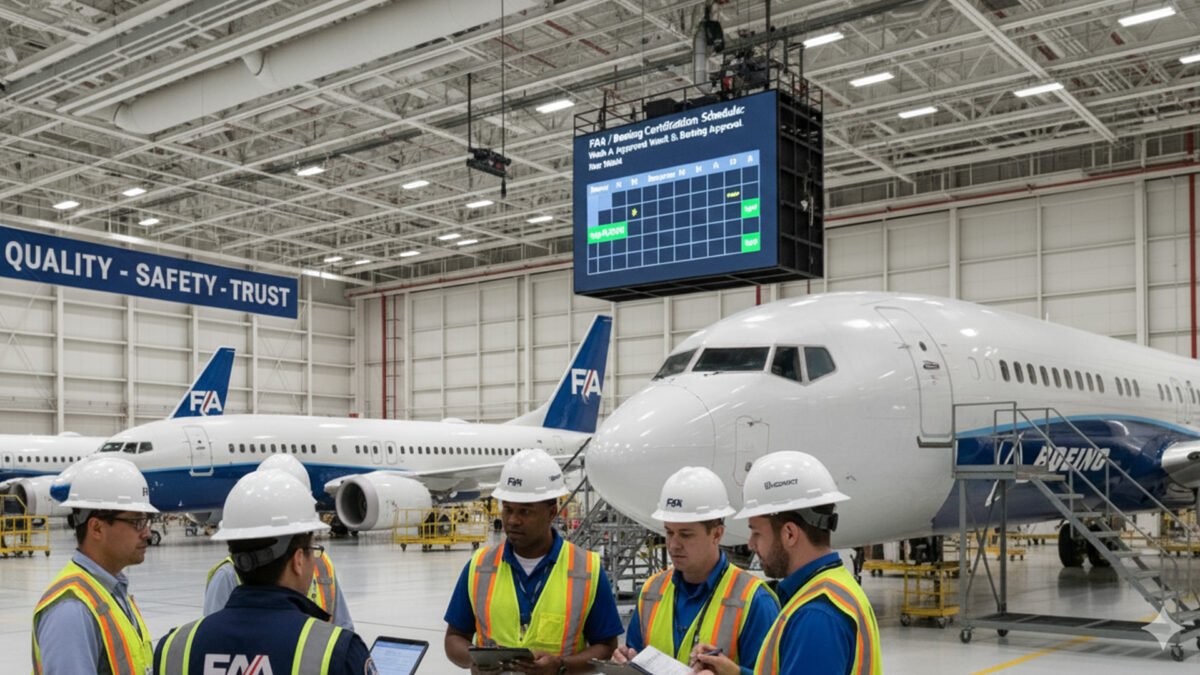The U.S. Federal Aviation Administration (FAA) has restored limited certification powers to Boeing, allowing the company to resume issuing airworthiness certificates for some of its 737 MAX and 787 Dreamliner aircraft.
The decision, effective from September 29, comes more than six years after Boeing lost these privileges following two fatal crashes that exposed serious flaws in its safety processes.
The FAA said Boeing will once again be able to certify aircraft but under a hybrid arrangement in which the company and the regulator will alternate weeks in carrying out the approvals.
The system is designed to maintain close federal oversight while gradually returning responsibilities to Boeing. The regulator emphasised that it would continue to carry out “direct and rigorous oversight” of Boeing’s production lines even as some authority is handed back.
Boeing’s certification powers were stripped in 2019 after crashes involving Lion Air and Ethiopian Airlines flights, both 737 MAX jets, killed 346 people and led to the aircraft’s global grounding.
The FAA later extended restrictions to the 787 programme in 2022 after identifying persistent production quality issues.
The decision to partially restore authority follows what the agency described as a thorough review of Boeing’s current manufacturing standards.
The move could ease a backlog of aircraft deliveries by reducing the bottleneck created when the FAA assumed full control of approvals. It may also signal growing confidence that Boeing has taken steps to strengthen its safety culture, which has been under intense scrutiny since the crashes.
However, the FAA has kept in place a cap on 737 MAX production at 38 planes per month, a measure imposed after a mid-air panel blowout on an Alaska Airlines jet in early 2024.
Boeing continues to face regulatory pressure. Earlier this month, the FAA proposed a $3.1 million fine over alleged safety violations between late 2023 and early 2024, including reports of an aircraft being presented for certification despite non-compliance with requirements.
The company has also been warned that further lapses could jeopardise the gradual return of delegated authority.
For Boeing, regaining even partial certification powers is an important milestone in efforts to rebuild trust with regulators, airlines and passengers.
The company is keen to demonstrate that its internal systems and processes are now robust enough to handle responsibilities once seen as routine. Analysts say the FAA’s decision reflects cautious optimism but stress that Boeing remains under the closest scrutiny of its modern history.
The restoration of certification powers marks a significant step for Boeing but does not end regulatory constraints. The FAA’s alternating system of approvals means that federal inspectors will remain a visible presence on Boeing’s production floors, ensuring that reforms implemented in recent years are consistently upheld.
Also Read: Supreme Court Approves JSW Steel’s Takeover of Bhushan Power & Steel
